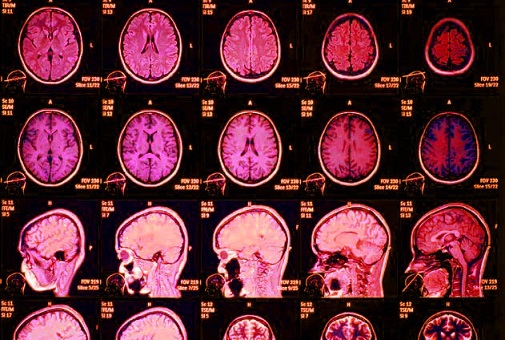Study shockingly finds that those who develop anosmia during COVID-19 actually end up with brain changes!
Nikhil Prasad Fact checked by:Thailand Medical News Team Aug 18, 2024 1 year, 4 months, 4 days, 4 hours, 35 minutes ago
Medical News:
The Lingering Impact of COVID-19 - How Loss of Smell Could Signal Brain Changes
As the world continues to grapple with the long-term effects of COVID-19, researchers are uncovering alarming evidence of how the virus affects not just our lungs but also our brains. A new study conducted by scientists from several institutions in Chile, including the Universidad del Desarrollo, Universidad Diego Portales, and Pontificia Universidad Católica de Chile, has revealed that patients recovering from COVID-19 who experienced anosmia (loss of smell) during their infection may face significant behavioral, functional, and structural brain changes. This
Medical News report delves into these findings and what they could mean for the millions of people worldwide who have battled this virus.
 Study shockingly finds that those who develop anosmia during COVID-19 actually end up with brain changes!
Understanding the Study
Study shockingly finds that those who develop anosmia during COVID-19 actually end up with brain changes!
Understanding the Study
The study examined a group of 100 adult patients, 73 of whom had mild to moderate COVID-19, while 27 had respiratory infections caused by other agents and no history of COVID-19. The research team employed a range of cognitive tests, decision-making tasks, and MRI scans to assess the participants. This study highlights the critical importance of anosmia and hospitalization as potential markers for neurological involvement and the severity of disease, respectively.
Anosmia and Brain Changes: A Concerning Correlation
One of the most striking findings from the study is the correlation between anosmia and brain alterations. Anosmia, or the loss of smell, was found to be associated with more impulsive decision-making behaviors and changes in brain function. Specifically, patients who experienced anosmia showed decreased functional activity in key brain regions during decision-making tasks, along with thinning in cortical regions and a loss of white matter integrity.
These changes are not merely abstract scientific findings; they have real implications for how individuals behave and make decisions. The study found that patients with anosmia tended to make more impulsive choices in decision-making tasks, which could have broader impacts on their daily lives. This impulsivity was reflected in the brain's decreased ability to process value-related information during decision-making, suggesting that anosmia may be a marker for underlying brain damage caused by the virus.
Hospitalization and Its Cognitive Impact
While anosmia was linked to specific brain changes, the requirement for hospitalization during the acute phase of COVID-19 also emerged as a significant factor. Patients who were hospitalized showed different behavioral patterns, characterized by more perseverative choices - a tendency to stick with a particular option despite negative outcomes. This behavior was also linked to decreased learning rates after negative outcomes, indicating that these patients might struggle more with adapting to new information or changing circumstances.
Interestingly, despite these
behavioral changes, the study found no significant differences in overall cognitive performance between patients with and without COVID-19. This suggests that while these brain changes may not always manifest as obvious cognitive deficits, they could still influence more subtle aspects of behavior and decision-making.
The Broader Implications of Anosmia
The findings of this study add to the growing body of evidence that COVID-19 can have lasting effects on the brain, even in patients who only experienced mild to moderate symptoms during the acute phase. Anosmia, in particular, has emerged as a potential marker for identifying individuals at risk of these long-term brain changes. This has significant implications for how we manage and follow up with patients recovering from COVID-19.
Given the widespread occurrence of anosmia during COVID-19, this symptom could serve as an early warning sign for more severe neurological involvement. Patients who experience loss of smell during their infection may benefit from closer monitoring and follow-up care to detect any potential cognitive or behavioral changes early on.
Structural Changes in the Brain: What the MRI Scans Revealed
The study’s MRI scans provided further insights into the structural brain changes associated with COVID-19. Patients with anosmia exhibited thinning in the parietal regions of the cortex, which is involved in integrating sensory information and processing attention. Additionally, these patients showed decreased integrity in several major white matter tracts, including the corticospinal tract and arcuate fasciculus, which are critical for communication between different parts of the brain.
These findings suggest that even in the absence of severe respiratory symptoms, COVID-19 can cause subtle but significant changes in brain structure. This raises important questions about the long-term impact of the virus on brain health and the potential for these changes to contribute to cognitive decline or other neurological issues later in life.
The Need for Ongoing Research
The study highlights the urgent need for ongoing research into the long-term neurological effects of COVID-19. While this study provides valuable insights, many questions remain unanswered. For instance, it is still unclear whether the brain changes observed in these patients are permanent or if they may improve over time with recovery. Additionally, more research is needed to understand the specific mechanisms by which COVID-19 causes these changes and whether certain individuals may be more susceptible than others.
Conclusion
The study’s findings underscore the importance of recognizing and addressing the potential long-term impacts of COVID-19 on brain health. Anosmia, a seemingly mild symptom, could be a red flag for more serious neurological involvement, highlighting the need for careful follow-up and monitoring of patients recovering from the virus. As researchers continue to uncover the full extent of COVID-19's impact on the brain, it is crucial that healthcare providers remain vigilant in identifying and supporting those at risk.
The study findings were published in the peer-reviewed journal: Scientific Reports.
https://link.springer.com/article/10.1038/s41598-024-69772-y
For the latest
COVID-19 News, keep on logging to Thailand
Medical News.
Read Also:
https://www.thailandmedical.news/news/study-finds-sars-cov-2-spike-protein-accumulating-in-skull-marrow,-brain-meninges-and-brain-parenchyma-while-killing-brain-cells
https://www.thailandmedical.news/news/covid-19-shrinks-your-brain
https://www.thailandmedical.news/news/great-news-university-of-oxford-study-shows-that-even-mild-sars-cov-2-infections-can-result-in-brain-changes-and-cognitive-decline
